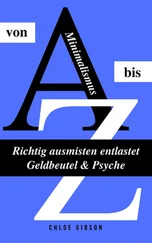I was fond of my colleagues, every one of them, and welcomed the sight and sound of them most mornings, first my female colleagues in the changing rooms, where we’d often touch up our faces and comb the city from our hair, and then the male ones during team assembly, always taking note when Roland or another favourite was absent, which wasn’t often, given the serious nature of our job.
It was nearing four that Tuesday, an autumn day that had started like any other, and the light in the museum lay on the cusp of natural and artificial illumination, the skylights and louvres still filtering in what they could of the early dusk, the light sensors poised to climb a notch as soon as they registered a gloaming.
I was in Room 25 with the van Hoogstraten peepshow, always a source of curiosity, at least at first. Four adolescents came in and gathered round, taking turns to peer in through the side holes as if they were dark forbidden slits. Yet I knew their interest wouldn’t last. Despite the cupids on the exterior, the Hoogstraten contained nothing but a masterly exercise in perspective: the bare, orderly, well-swept interior of a seventeenth-century Dutch home, the only living beings a spaniel with tawny eyes and two women, one nightcapped in bed and the other seated in the far background reading a book, with the silhouette of a man behind a door.
Familiar with expressions of disappointment, the promise of something erotic trumped by the everyday, I watched with satisfaction as the teenagers shrugged and moved on.
And then I saw the man’s face heading towards me, his short legs taking long strides in my direction, and though his command of English was shaky he managed to articulate with a few words and as many gestures that he and his wife had noticed that the guard in Room 23 was unwell.
I left the teenagers and hurried to tell Roland, who was haunting the threshold between 26 and 27, that I was going to investigate an incident and could he in the meantime alert Security, and with that I took a sharp turn into Room 23 to find my colleague Leighton Crooke slouched in his black leather chair. Instead of the formal vertical required of our profession, his body was slanting to the right, a forty-degree angle tipping into forty-five, as if nailed to the chair at the base but struggling, after decades of obedience, to wrench itself free. His eyes had withdrawn their vigil and his hands lay formless and inert in his lap. I approached as calmly as I could and tapped the stiff shoulder encased in the grey uniform. Crooke was nearly seventy and had dozed off on the job before.
After the tapping failed to produce a reaction I held up his wrist and felt for his pulse, pressing lightly and then, upon feeling nothing, a bit harder. It seemed extremely faint, if present at all, but I didn’t trust myself to declare any man dead or alive — I thought I could detect some faint life current but wasn’t sure, it could simply be the residual warmth of an expired system — and, fearing it would soon be altogether nonexistent, I stepped out of the way to allow Frances from Human Resources to take charge. With a cool air of authority, years of moving with ease through the different strata of our museum, she crouched down beside Crooke and reached for his other wrist, removed his watch, and pressed her forefinger and middle finger against the base of his thumb far more assertively than I had, the pale blue veins that ran beneath his papery skin forming an unlikely continuum with the blood-red polish of her nails.
Curious visitors had begun to turn away from the pictures towards the spectacle in the chair, and I could almost sense the man’s fading pulse radiating outwards into the room as if searching to latch on to new hosts.
Two more colleagues arrived, murmuring loudly, their agitation unconcealed. Frances stood up, straightened her skirt and asked us to help clear the room. Just as the last visitors, the couple who’d found him, by then probably feeling invested in the man’s fate, had left, four medics rushed in through the far door with a stretcher.
Something was happening in the Gallery, a flicker of an event that would be committed to the annals, and this time I was part of it, though from a historical perspective it was only the quiet death of a sixty-eight-year-old felled, most likely, by a heart attack, I had to remind myself as I watched sadly on as the corpse was gently lifted, laid out on the stretcher, and removed.
The dusk of Millbank had filled with the amber lozenges of unoccupied black cabs, miners with lantern-strapped foreheads rushing towards or away from the city centre, as I made my way to meet Daniel at the Drunken Duck, a pub a few streets from Tate Britain.
I stepped inside and searched for my friend in the noisy crowd that had gathered amidst the wooden stools and nodding taps, and eventually found him at a table that offered a strategic view of his current passion. The girl at the bar, though he had yet to speak to her.
‘I’m sorry about Crooke,’ were his first words once I’d removed my coat and draped it over a chair. ‘I remember him from my years there… He seemed like a good man.’
‘Yes, I thought so too. How did you hear?’
‘Oh, the news reached us pretty quickly,’ he said, pushing a pint of beer towards me. ‘I got stout, hope that’s okay.’
‘Thank you,’ I said, though he knew I preferred wine.
He shot a longing look in the direction of the bar, then turned back to me, his heavy-lidded blue eyes sloping down into his temples with the melancholy that sometimes crept into his face when he wanted something he couldn’t have.
Daniel Harper and I met nine years ago, patrolling neighbouring rooms of the Sainsbury Wing and, by day four or five, discovered a kinship. His air was removed, fugitive and self-contained, his focus on something far beyond the Gallery’s grand portico and vestibules, and from the start he struck me as different from the other guards. Whenever I’d peer into the next room I’d see him either pacing back and forth or writing in a notebook. He wrote at lightning speed, I observed, yet when visitors entered the room the notebook would vanish into his pocket like a magic trick in reverse. I couldn’t figure out what he was writing — cricket scores, shopping lists, endless games of noughts and crosses — but he did it with such stealth, I imagined it must be something confidential; I later found out they were poems.
Apart from his withdrawn aura, the other noteworthy characteristic was his limp, a visual stutter that accompanied most of his movements. When stationary, he looked geometrically even; the moment he moved, the evenness was lost.
Daniel was as honest, knowledgeable and courteous a guard as they come but in the end he was fired, fired for his pacing, since he couldn’t keep still and would pace from one end of the room to the other, the pacing made worse by his limp, for he would take one step forward and then drag the other foot in its wake at four- to five-second intervals like a broken metronome. It didn’t help when he changed to soft-soled orthopaedic shoes; you could still hear every step and drag of his feet. He would only come to rest when asked a question, but the moment he finished answering he would resume his tortuous path.
Because of his kindness and because, apart from the pacing, he was an exemplary guard who knew more about art than the rest of us, no one had the heart to complain, until one day a professor of early Flemish painting came to the Gallery to examine a triptych and by day six he was driven mad by the four- to five-second intervals and marched over to the management and lodged a complaint. It turns out this professor of early Flemish painting was married to one of the gallery’s main patrons, Lady So-and-so, and one week later Daniel received a letter of dismissal. Nearly catatonic with disbelief, he stopped writing for a year, talking only about his ‘pacing dragon’, and how these two feet of his, pacing and dragging in close alliance, would spell the end of him.
Читать дальше












